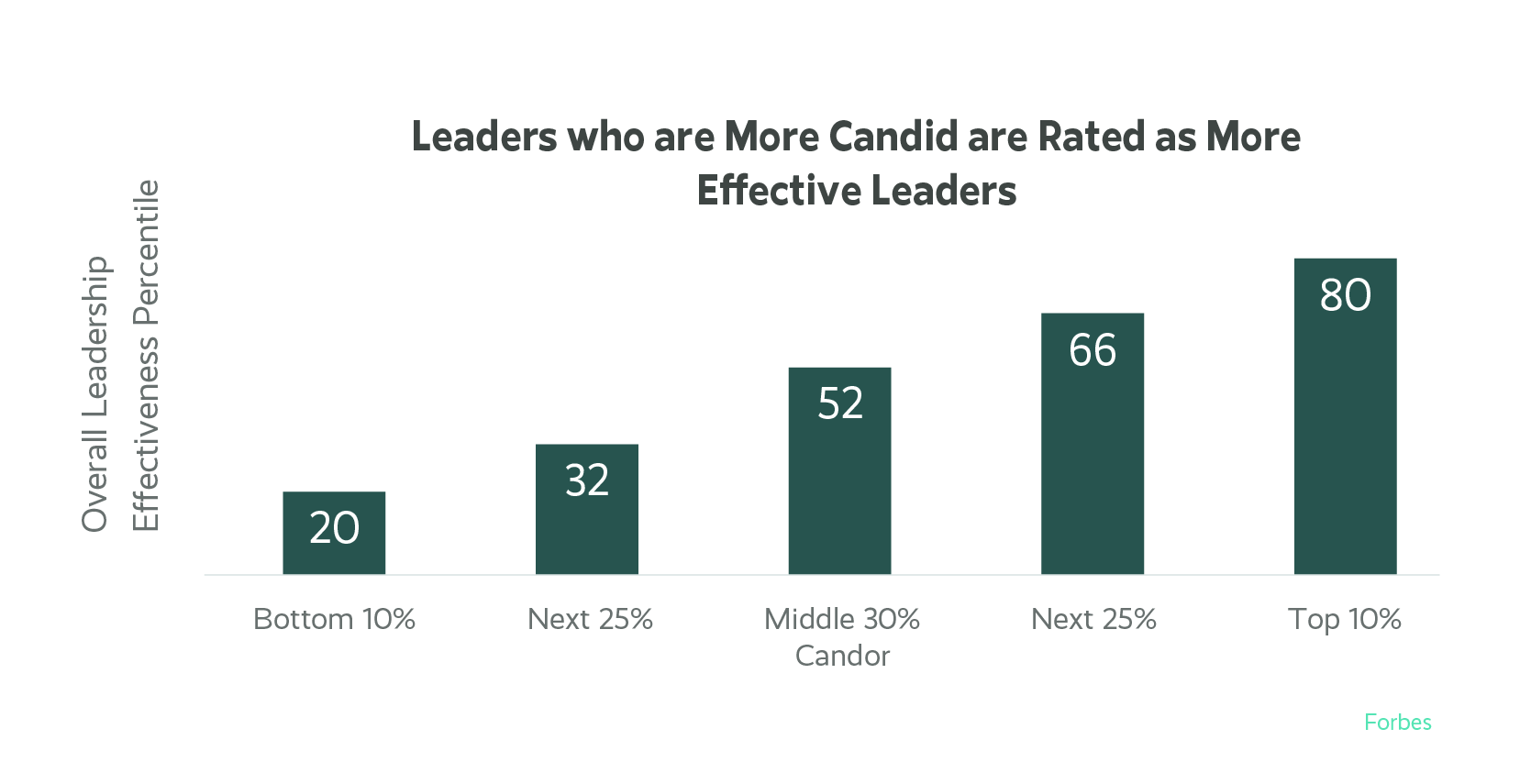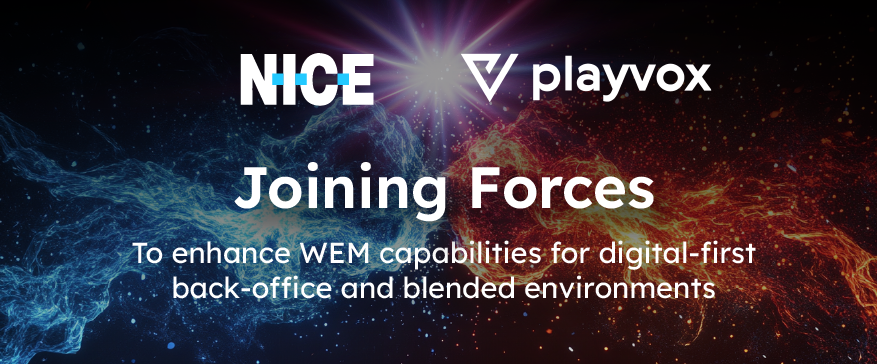Culture of Candor: How Honest Feedback Boosts Productivity
In successful organizations, there is a candor imperative.
We expect uncompromising honesty from our team members, and, in theory, we know transparent behavior is a critical dynamic in all healthy cultures. But, as a leader, our attitude toward a culture of candor may be skewed, calling into question the balance of candor in our organizations and customer support centers.
Are we asking more from our front-line employees than our leadership? And how can leaders create cultures of radical candor where constructive feedback and transparent communication drive toward our most important KPIs, including employee satisfaction and productivity? How do we make radical candor the natural tendency for our leaders, and business as usual for our organizations?
Candor In Companies Starts At The Top
By practicing candid leadership and committing to the same radical candor we expect from our employees, the benefits of a culture of candor emerge. It begins by examining our communication styles and attitudes toward candid feedback and honest communication.
For example, when contact center leaders don’t give candid feedback to agents because they want to avoid unpleasant conversations, they’re harming employee satisfaction more than helping it. In fact, candid conversations within a culture of candor is an excellent tool for boosting agent satisfaction, productivity, and, ultimately, customer experience.
Why Does A Customer Service Center Need Radical Candor?
Some leaders keep knowledge to themselves in an effort to wield control and authority, even as a way to conceal their mistakes. But problems are harder to hide than ever before, making trust in institutions—and their leaders—precarious. All it takes is a smartphone and social media account to turn secrets into scandals, viewable by thousands or millions of people. It’s the stuff of real business disasters.
When you, instead, maintain a culture of radical transparency in the workplace, you avert that kind of challenge and also optimize resources. In fact, transparent communication is among the biggest levers for organizational success.
Sharing information, with positive intent, benefits teams by exponentially increasing expertise and resources. When asked, customer support agents are eager to contribute. Their diverse experience can uncover problems that may be overlooked otherwise.
Front-line contact center agents have unique insights into your customers’ psyches which can sometimes only be discovered by communicating with them every day. A 360° flow of information empowers you to make smarter decisions and design systems that address the most pressing needs of your customers and business.
Honest Feedback Improves Employee Engagement
In contrast to those who are tight-lipped, some leaders may want to be more open and communicative. But they struggle to overcome the awkwardness that often accompanies candor in the workplace. They don’t want their communication to be perceived as critical, negative, or offensive, and drive customer service agents to leave. This empathy is noble, but it’s also misguided. It may even be counterproductive.
Constructive feedback helps agents grow, excel, and build on performance. An open feedback loop can make them feel more valued by leaders, and they are more engaged and productive. Engaged employees pay greater attention to their work and perform better than those who are bored and detached. Importantly, better engagement means better customer experience.
There are clear benefits to feedback, but giving feedback to agents is only half the equation in a culture of candor. For radical candor to truly be effective, constructive feedback should be directed from employees to managers as well.
When agents feel secure enough to voice their concerns, it builds trust. Issues that arise and affect employee morale can quickly be uncovered, discussed, and rectified. On the other hand, when your team feels like it must stay silent about issues that arise, it breeds resentment. This discord is contagious, and it can easily spread through departments and across the organization, resulting in increased turnover.
But even before unhappy agents leave, widespread disengagement can lead to:
- Operational inefficiencies
- Decreased productivity
- Reduced agent effectiveness
- Lower customer satisfaction

A policy of silence can turn relatively minor grievances into deeply entrenched, organization-wide beliefs. That’s why although a culture of candor can initially feel like an uphill battle, it will solve problems while they are still small, avoiding major cultural issues long-term.
The day-to-day work of agents in contact centers is challenging. So, when leadership finds ways to demonstratively support their customer service teams, it doesn’t go unnoticed. In fact, the benefits are measurable and positive for both the employee and, ultimately, the customer experience.

Once issues are out in the open, you have control. You and your team have the opportunity to come together, identify the cause, and execute better next time.
Many people hide their real thoughts and feelings at work because they’re afraid they will alienate their boss and coworkers. But in issues of importance, it requires significant interpersonal strain to repress it. This internal tension only builds over time.
This cycle can end up affecting personal health. It also lowers team morale, since employees may express their issues to everyone but the leaders who can fix them. The situation then worsens. It quickly trickles down to negatively impact customer experience.
Through honest communication, organizational issues can be addressed and resolved. Even if a solution isn’t obvious, feeling heard and understood is a major step toward resolution.

Compassion In Candor
There are leaders who avoid candid feedback in the name of compassion. A culture of candor, however, is the best way to help employees. For those who are low-performing, when feedback is vague—or absent—it eliminates the opportunity for improvement. For high-achievers in the workplace, it’s the path to further growth.
Through radical candor and sharing constructive critical feedback, leaders clearly demonstrate they care about and value their teams, customers, and business. As a result, all are optimized.
Practical Tips For Effective Candor
There’s an art to candor in the workplace, and a way to deliver feedback, especially corrective feedback, effectively. Here are four practical and proven tips for sharing feedback constructively:
- Address the work, not the individual
- Give critical feedback right after a triggering event
- Focus on the action necessary for improvement
- Set specific and measurable corrective goals that can be tracked
If you still find it tough to operate with candor and provide corrective feedback in the workplace, consider talking to another manager or business coach. You can role-play difficult conversations until it feels natural. Delivering critical messages in a positive way, with positive intent, takes practice. There are also many helpful books on building a culture of candor, including “Radical Candor: Be a Kick-Ass Boss Without Losing Your Humanity,” by Kim Scott.
It’s always a good idea to start the conversation with the negative feedback. State your case clearly and directly, without being personal or harsh. Once you get the hard part out of the way, you may find the person accepts what you’re saying better than you anticipated. If they don’t, you can quickly move on to the solution.
Creating a culture of candor takes commitment, consistency, and work, but it fosters a healthy and supportive business environment that thrives.
A Final Thought
In an interview on Harvard Business Review’s HBR IdeaCast podcast, author Kim Scott emphasized that while feedback is the foundation of a culture of candor, listening is critical. She put it this way, “Radical candor doesn’t get measured at my mouth. It gets measured at your ear. But how can I learn to know what’s happening at your ear? It’s about listening more than it is about talking.”
Start developing a culture of candor in your organization by listening to contact center leaders like you, who are committed to creating exceptional customer experiences. Hear from the Playvox team and expert guests from around the industry as they share their stories on the Masters of Support.







